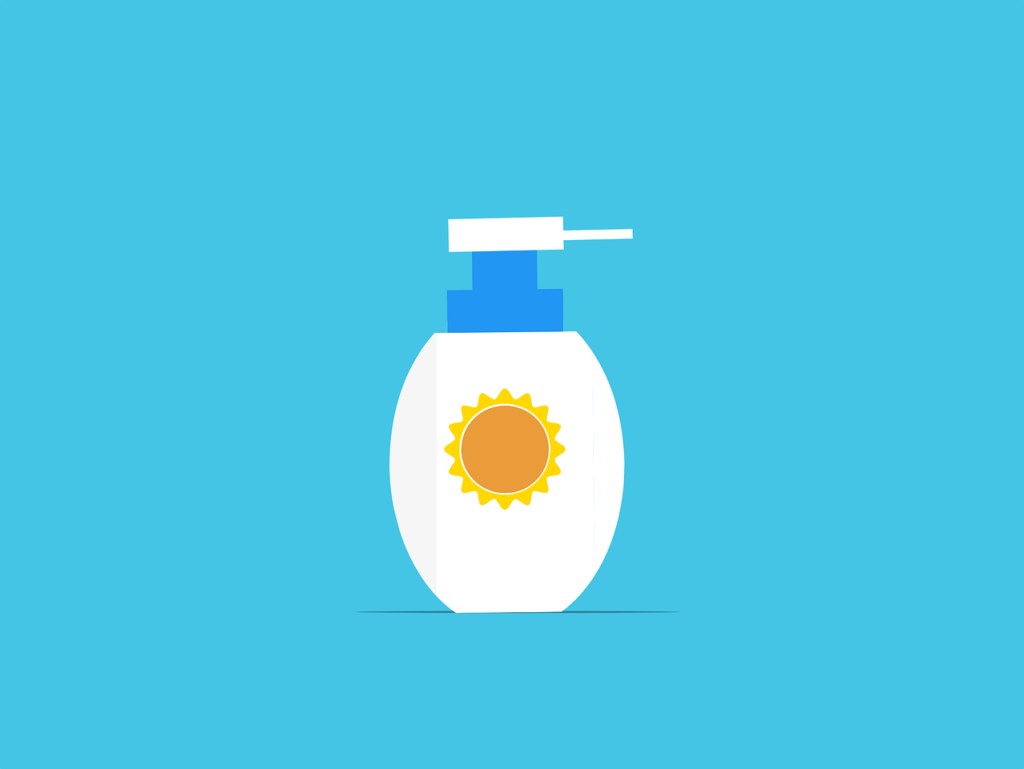The sun shines invitingly and warmly, and it is all too easy to forget why the skin needs protection. When it comes to the sun, our skin demands respect. Skin cancer can be a deadly disease, and the National Cancer Institute reports that more than 1.2 million people are diagnosed with it each year. Of those, about 8,000 die. And still, many people do not wear sunscreen. Why not? Could it be that they just do not understand how important the skin is and what the sun can do to it?
Suntan lotion functions by creating a protective barrier against ultraviolet (UV) radiation, which is divided into two main categories: UVA and UVB. UVA rays penetrate more deeply into the skin and are mainly responsible for the kinds of changes we notice as we age, like wrinkles and age spots. By contrast, UVB rays are largely to blame for the kind of surface damage that gives you a sunburn and also contributes to certain types of skin cancer. A broad-spectrum sunblock offers protection from both kinds of rays and is therefore a key part of any sun safety regimen.
Sunburn lotion's effectiveness is proportionately revealed in the sun, and the sun isn't going anywhere. For the sake of decency, let's move on to the salve and the simplest of sunburn shield measures. The sunburn lotion most people lie on is made here in the USA. And it carries an FDA-approved rating that most people carry around in their heads—a goofy number that reveals just how protected one is (or isn't) when under direct solar rays for an extended period (or not). The number itself isn't goofy; it's just not a measure of good, better, best, or "you probably should just stay out of the sun altogether, baby."
Besides Sun Protection Factor, other elements determine how effective a suntan lotion is. The formulation can significantly impact how well it protects the skin. Chemical sunscreens absorb UV radiation and convert it to heat, which is then released from the skin. On the contrary, physical sunscreens contain active mineral ingredients like zinc oxide and titanium dioxide, which sit on the skin's surface and reflect UV rays. Each has its perks; for example, physical sunscreens tend to be less irritating for sensitive skin. Still, chemical sunscreens, when not in the "scream" formulations, are more easily applied and tend to feel better on the skin.

Another really important thing about sunscreen that affects how well it works is the method of application. To achieve the best protection possible, you want to apply the stuff generously and evenly to all exposed parts of your body. You should do this a minimum of about 15 minutes before you go into the sun for a prolonged period. And then there's reapplying. Most dermatologists recommend that you reapply every two hours and that you pay special attention to the "e" in the "s-e-a" sunscreen reapply mnemonic if you are going to be or if you've just been in the water (pool, lake, ocean, etc.) or if you've been perspiring a lot or if you've just towel dried (a "dry" phase that usually comes after a "wet" phase).
Even though suntan lotion has clear advantages, many individuals do not use it consistently. This can be linked to several causes, like not really getting the dangers that UV radiation can pose or having the wrong idea about what a bronzed appearance actually signifies. Some individuals think that they are "safe" from harmful rays as long as they are not in direct sunlight when, in actuality, those rays can reflect off of various surfaces and penetrate right through cloud cover.
In addition to this, the societal push for individuals to have a sun-kissed look can lead people to put skin safety on the back burner and go for the bronze. We definitely shouldn't be aiming for that. The skin is the body's largest organ, and when it comes to protection, there's a huge difference between healthy skin and skin that's been altered by UV rays. The former fends off everything from dust to bacteria to viruses to toxins; the latter is a warning sign to the body that something's not right. And yet many of us are going for the look of just having been on the beach—without the actual beach time, of course.
To sum up, sunscreen is an important ally in the struggle against UV damage. When we understand why it is important to have broad-spectrum protection; know how to apply it so that it will actually protect us; and are aware of the dangers we expose ourselves to when we do not use it, we can feel empowered to make the decision to use sunscreen regularly. It is a simple act that can yield great results in terms of preserving not only the appearance of our skin but also its integrity and safety. And, while it is not a "cure" for skin cancer, it is certainly a preventive "treatment."